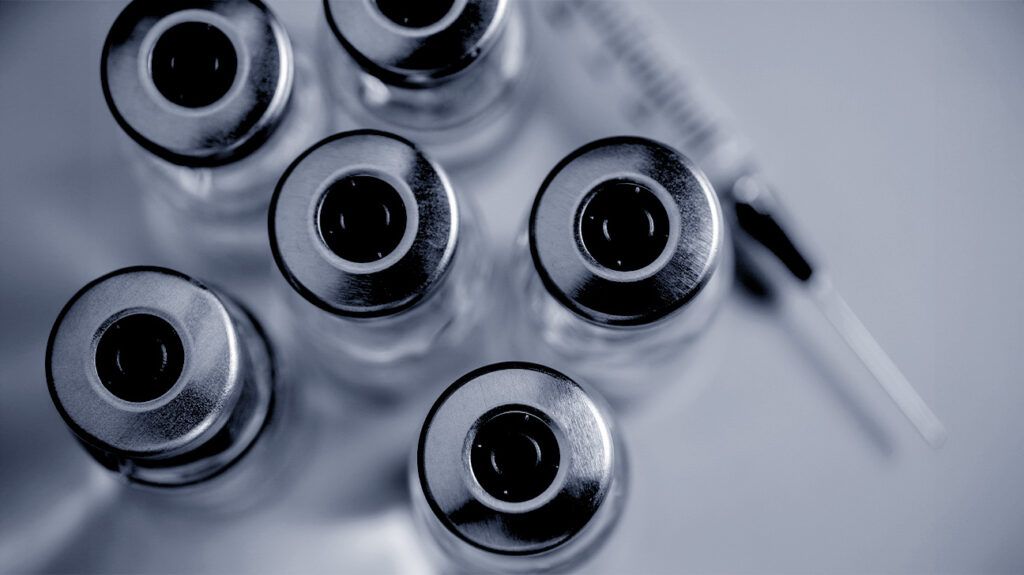
- Psoriatic arthritis is an immune-driven condition that can occur in children with psoriasis.
- Although treatments are available, they do not work for every child.
- The U.S. Food and Drug Administration recently approved abatacept (Orencia) to treat these children.
- Abatacept, marketed by Bristol Myers Squibb, is a biologic drug.
- Trials indicate the drug is safe and effective for children aged 2 and older.
Psoriasis is a common skin condition characterized by scaly and inflamed skin.
It affects around 2% to 3% of the world’s population.
An estimated 30% of people with psoriasis also develop psoriatic arthritis (PsA) — a chronic inflammatory condition that affects people’s joints.
Most commonly, it first occurs in adults aged 30 to 50 years, but it can appear much earlier.
Roughly one-third of psoriasis cases begin during childhood.
Although it happens more rarely than in adults, these children are also at risk of developing PsA.
This is called juvenile psoriatic arthritis (JPsA) and the peak onset age is 2 to 3 years with another peak occurring in mid-adolescence. Diagnosing adult PsA is difficult and JPsA has additional challenges.
Medical News Today spoke with Dr. Pamela Weiss, the director of rheumatology clinical research and attending physician in the Division of Rheumatology at the Children’s Hospital of Philadelphia.
“PsA in children is difficult to diagnose for many of the same reasons as in adults,” she said. “One added difficulty is that only one-third of children have psoriasis prior to the onset of arthritis, which can make distinguishing it from other types of juvenile arthritis a bit more challenging.”
Although there is some debate surrounding how JPsA is related to other forms of early-onset arthritis, experts classify it as a form of juvenile idiopathic arthritis (JIA), which is an umbrella term for a range of similar conditions.
Terminology aside, JPsA accounts for
“Adolescents can also get peripheral and axial arthritis, tenderness at tendon insertions (enthesitis), inflammatory bowel disease, and eye inflammation (uveitis),” Weiss said.
“Younger (toddler age) kids with PsA often look a lot more like oligoarticular JIA than adults with PsA. They are less likely to have enthesitis and axial arthritis and are more likely to have chronic uveitis,” she added.
Other symptoms can include:
- Psoriatic skin lesions
- Swelling of individual toes or fingers
- Arthritis or pain in the lower back or spine
- Pitted or red nails
Speaking about the long-term impact of JPsA, a representative from Bristol Myers Squibb told Medical News Today, “The chronic inflammation of JPsA can cause joint damage, problems with bone growth, and chronic arthritis and disability as the children age.”
Scientists do not yet know the direct causes of this serious condition, but there is a genetic component. About 40% of children with JPsA have a close relative who also develops it.
There is currently no cure for JPsA, but a number of treatments are available. These include:
- Nonsteroidal anti-inflammatory drugs (NSAIDs).
- Steroid injections directly into joints.
- Disease-modifying anti-rheumatic drugs (DMARDS) such as methotrexate.
- Biologic medications, including etanercept, ustekinumab, and secukinumab
Also, physical therapy can help maintain and improve joint function, as can regular exercise.
Currently, experts consider
Doctors often switch between drugs to determine which best suits the individual. However, there are relatively few to choose from that are approved for use in children. In addition, many of the existing treatments have significant side effects, which limits their use in the long run.
Abatacept (Orencia), manufactured by Bristol Myers Squibb, is a biologic treatment.
Rather than targeting TNF-alpha or other cytokines, the drug modulates two signals that are necessary to stimulate T cell activation, reducing immune activity.
Doctors prescribe it to treat autoimmune conditions, including adult rheumatoid arthritis and JIA.
Until recently, though, this did not include JPsA. In October 2023, the Food and Drug Administration (FDA) expanded its use for children with JPsA over the age of 2 years.
The move comes after long-term studies
The most common side effects were relatively mild and included:
- headaches
- cold symptoms
- sore throat
- nausea
A Bristol Myers Squibb official told Medical News Today:
“The U.S. FDA approval expanding Orencia’s active psoriatic arthritis indication to include pediatric patients 2 years of age and older was an important milestone, providing an additional much-needed treatment option for children living with this condition.”
We asked Weiss how abatacept performs compared with other currently available JPsA treatments:
“There have been no head-to-head studies of abatacept with other biologics for pediatric PsA, so that’s difficult to comment on. Given that there can be recalcitrant skin and/or joint disease in kids, just like in adults, it is enormously helpful to have several approved therapies that target different pathways,” she said.
Because abatacept seems effective and relatively safe for long-term use, it provides a much-needed additional treatment option for children with JPsA.
“Children living with psoriatic arthritis can experience a number of challenging symptoms including swollen and painful joints,” explained Steven Taylor, the president and chief executive officer of the Arthritis Foundation.
“The FDA’s approval of Orencia for juvenile PsA in patients 2 years of age and older means another treatment option is available to manage this rare chronic disease, which is exciting news for the arthritis community of young patients, their caregivers and healthcare professionals,” he said.
While useful, abatacept is not perfect. Researchers will continue investigating other treatment options for this relatively common and disruptive condition. We asked Weiss whether there were any other treatments on the horizon.
“There are ongoing trials of medications that are approved with promising results in adults with PsA,” she said. “This includes apremilast (an oral medication that blocks PDE-4), guskelkumab and risankizumab (injectable IL-23 blockers), and ixekizumab (injectable IL-17 blocker).”
“All of these medications will be welcome additions to the currently very limited arsenal of medications available to combat this disease in kids,” she concluded.
